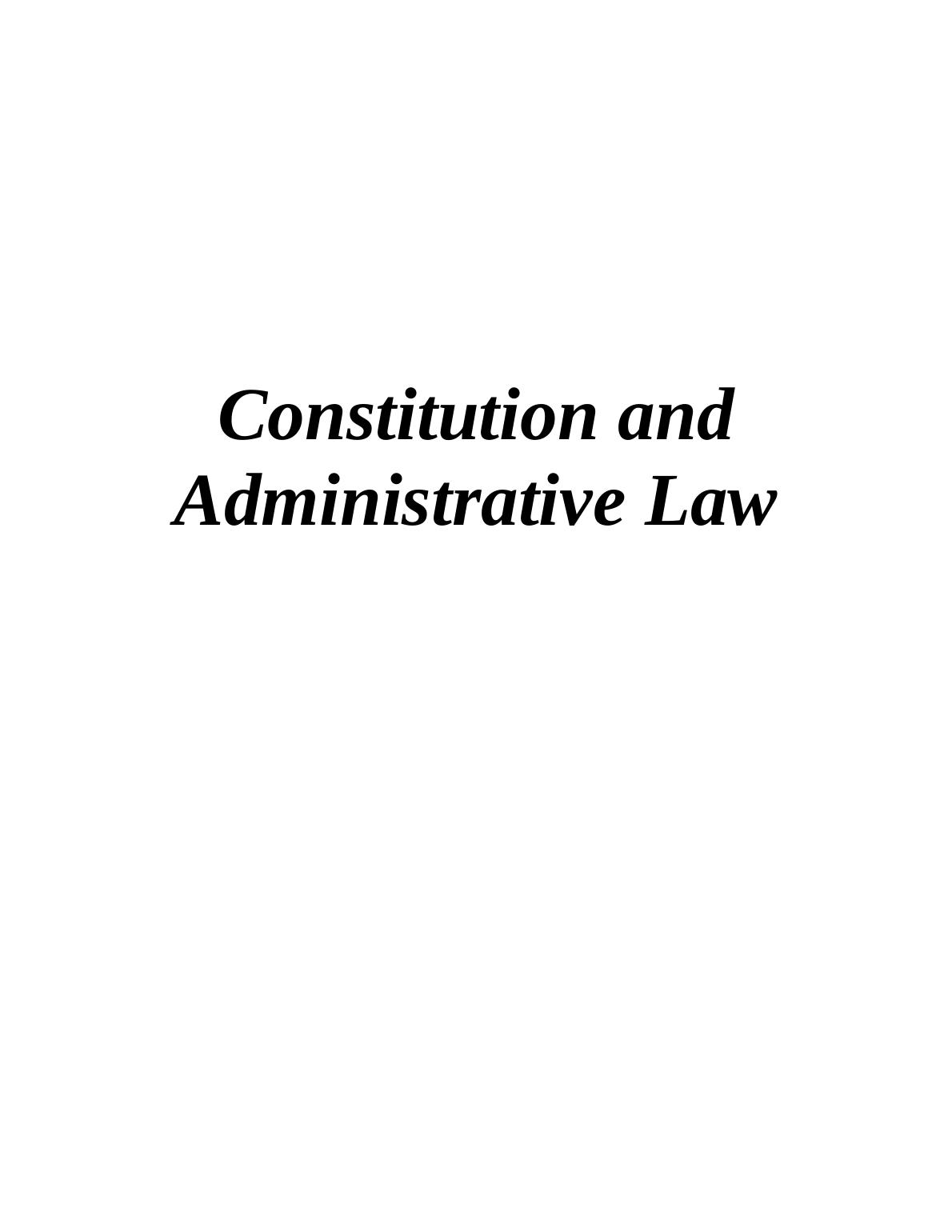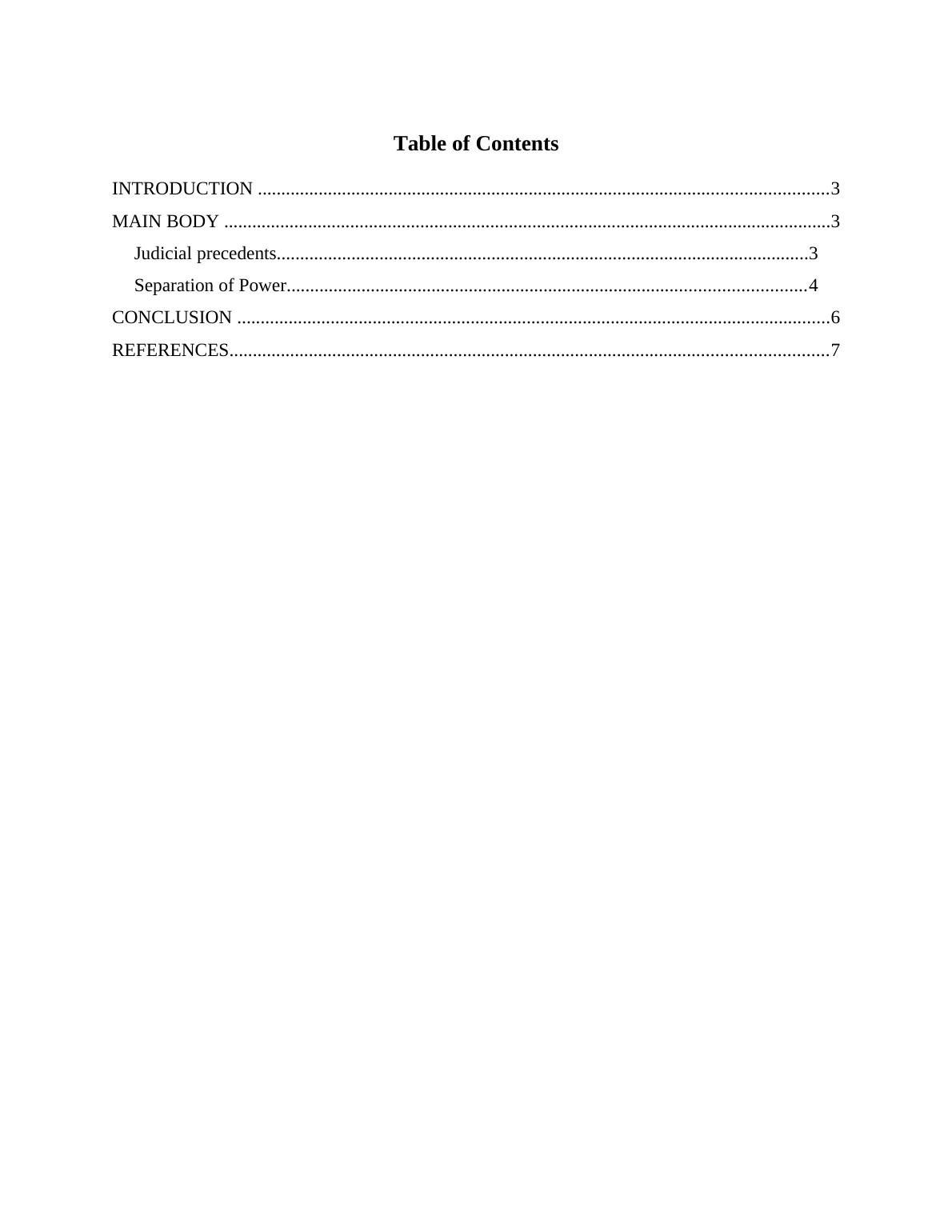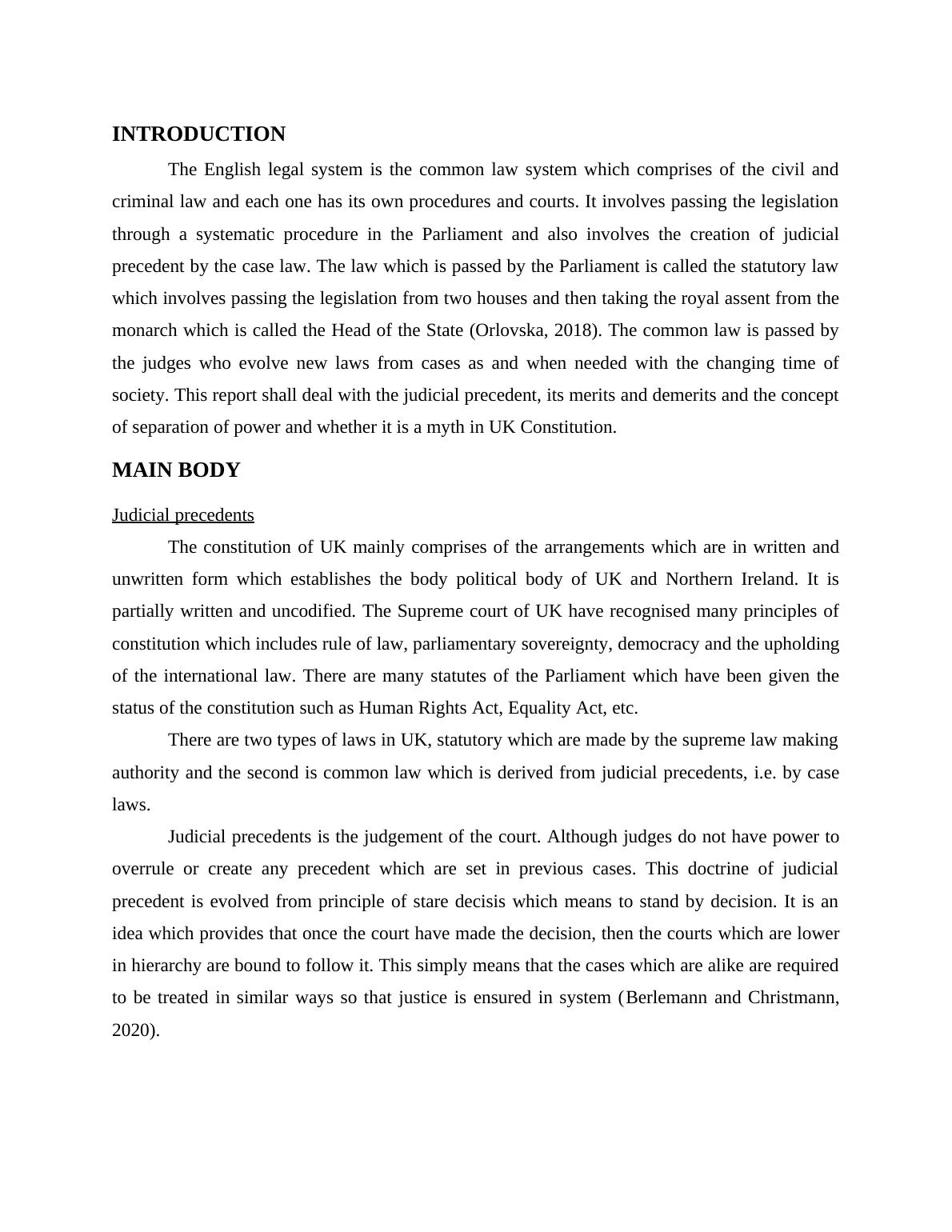Constitution and Administrative Law
7 Pages1291 Words146 Views
Added on 2022-12-14
About This Document
This report explores the concept of judicial precedents and separation of power in the UK Constitution. It discusses the advantages and disadvantages of judicial precedents and examines the myth of separation of power. Find relevant study material and solved assignments on Desklib.
Constitution and Administrative Law
Added on 2022-12-14
ShareRelated Documents
End of preview
Want to access all the pages? Upload your documents or become a member.
English Legal System: Doctrine of Stare Decisis
|11
|3382
|40
The Keystone of the Constitution: Executive vs Parliament
|9
|2439
|48
Business law in the United Kingdom | Assignment
|11
|3817
|28
Business Law Sources Assignment
|13
|4082
|166
Introduction to Law: Separation of Powers, Parliamentary Supremacy, and Rule of Law
|8
|1720
|1
Rules for Statutory and Judicial Interpretation in English Legal System
|9
|2754
|293



